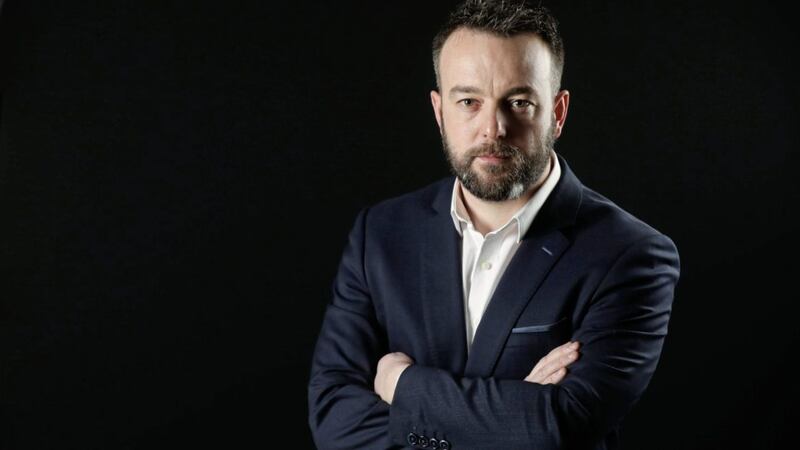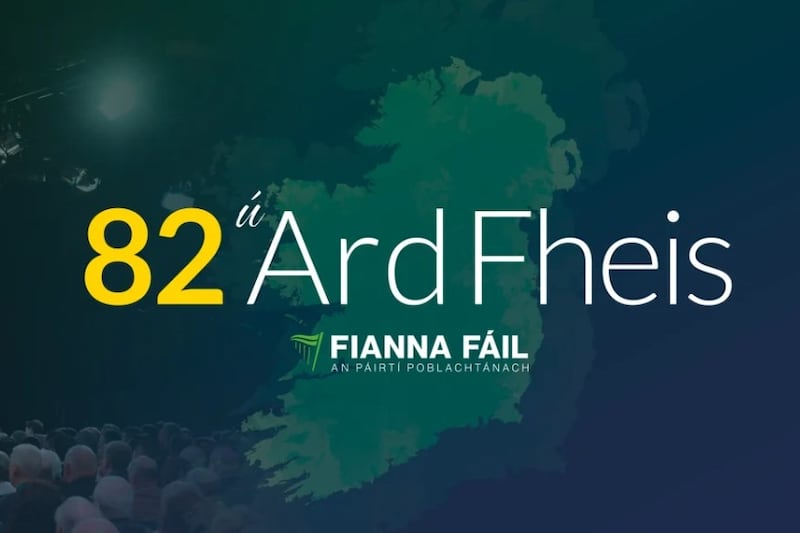COLUM Eastwood insists he’s unfazed by the results of this week’s Institute of Irish Studies-University of Liverpool/The Irish News opinion poll.
It put the SDLP on a 9.9 per cent share of the first preference vote, relegating it to fifth place in Stormont’s pecking order.
“Even on those numbers I think we’d win seats but we’re not on those numbers,” the SDLP leader says.
“We’ve done our own research as well and I’m not panicked at all.”
As far as he’s concerned the campaign ahead of May 5’s election has yet to begin.
“People have yet to focus on the issues and I think when they do they’ll see that the SDLP has the best slate of candidates since our foundation,” he says.
“When they see that this is an assembly election and it’s actually about electing a government, I think they’re going to realise that we’ve had 15 years of the same old stuff. People have been faced with a choice of bad government or no government for far too long. I genuinely believe people want something different.”
Seven years since he took the reins from Alasdair McDonnell at the head of the SDLP, the Foyle MP believes the party has “shifted in terms of our personnel and organisation”.
“We put people first whereas other parties put themselves first,” he says.
He also notes the drop in support for Sinn Féin in this week’s poll and believes the SDLP will gain seats in constituencies where the former may miss out, citing West Belfast, Fermanagh-South Tyrone, Foyle and South Antrim as possibilities. He is also reasonably confident that Strangford will return its first ever nationalist MLA.
Mr Eastwood dismisses arguments about who will emerge as first minister, pointing out that “both of them have been running the place with exactly the same partners for 15-odd years and our lives haven’t got any better”.
“While certain political parties want us to focus on who the first minister is or the protocol, I think the public would like us to focus on what a government actually does,” he says.
The SDLP leader is scathing about the inability of Sir Jeffrey Donaldson to state categorically that he’ll serve under a nationalist first minister, describing it as “the most undemocratic thing I’ve ever heard”.
“It suits both the DUP and Sinn Féin to have an argument about who the first minister’s going to be because what they do in this place all the time is bad government, then six months before the election we get everybody scared and worried about who’s going to be first minister, and claim the union is in peril – all that stuff.
“Then we end up having an election that is quite blatantly sectarian and nobody looks at the fact that our health service is in a mess, our young people are emigrating and the cost of living going through the roof.”
He insists that the day after the election, whether it’s Jeffrey Donaldson or Michelle O’Neill as first minister, “they're both first ministers”.
“It’s exactly the same position,” he says.
“That is the cancer that’s in our politics because they know they can flick the switch on this old argument.”
In recent weeks, the SDLP has been accused of criticising Sinn Féin too much, but Mr Eastwood is unapologetic, dismissing the criticism as “hilarious”.
“They’ve clearly never watched leader’s questions in the Dáil where Mary Lou McDonald is very vigorously and effectively attacking the government – that’s politics,” he says.
“They’re very sensitive to criticism for a political party that likes to dish it out – Nichola Mallon gets absolutely battered by Sinn Féin in the assembly but you don’t hear us complain.”
The Foyle MP takes aim at all Stormont’s parties, bar the Ulster Unionists. He says the current crisis around the institutions is “all of the DUP’s making” but insists Paul Givan’s resignation “makes no impact on the negotiations” between the UK and EU.
“The DUP have been holding a gun to their own head for months, saying 'if you don’t give me what I want I’m gonna shoot', and now they’ve shot and what have they got? Nothing,” he says.
“The DUP are going to be let down by the outcome of the negotiations when it happens because there's no way to give them what they want. And after all of these years I’m gobsmacked how they still think Boris Johnson’s going to do them a great favour.”
In what is arguably a back-handed acknowledgement that Alliance and the SDLP are chasing the same votes, Mr Eastwood attacks Naomi Long’s party on the basis that it “doesn’t even talk about" the constitutional issue” – an approach he finds “bizarre”.
“I like Alliance; I work with them; they’re progressive; I want more progressive voices around that executive table but I don’t think we can talk about the future without acknowledging that there’s a big conversation happening about the future of the island – I think Alliance are avoiding that issue,” he says.
“That’s for them. People have a choice to make when they go to the polls as to whether that’s good enough in this time of immense change."
The SDLP leader remains cautious about demanding a unity referendum in the short-term, believing “we should do the work to make sure we can win a border poll”.
He repeats his call for the Dublin government to create a Citizens’ Assembly to examine the potential for unity and says his party’s New Ireland Commission will be “ratcheted up” as Covid restrictions are expected to be eased. The Foyle MP describes Taoiseach Micheál Martin’s Shared Island Unit as a “good thing” but “not enough”.
“I think Dublin has to be involved in the conversation but I think most importantly, the public across the island have to be involved,” he says.
“Political parties will do their work. Sinn Féin will do their work, as will Fianna Fáil, Fine Gael and Irish Labour – at some point I hope we’re going to have a shared vision for the future.”
He argues that for historical reasons the SDLP is “can speak to a broader base than Sinn Féin”.
“The big problem is how we convince people who currently vote for Alliance and the Greens that they can be comfortable in this new Ireland,” he says.
“My view is that we sell a positive future, one that is about dragging people out of poverty, giving them first class public services and not threatening anybody’s identity. That is the DNA of the SDLP - the social democratic approach to politics, alongside that determination to bring people together.”








